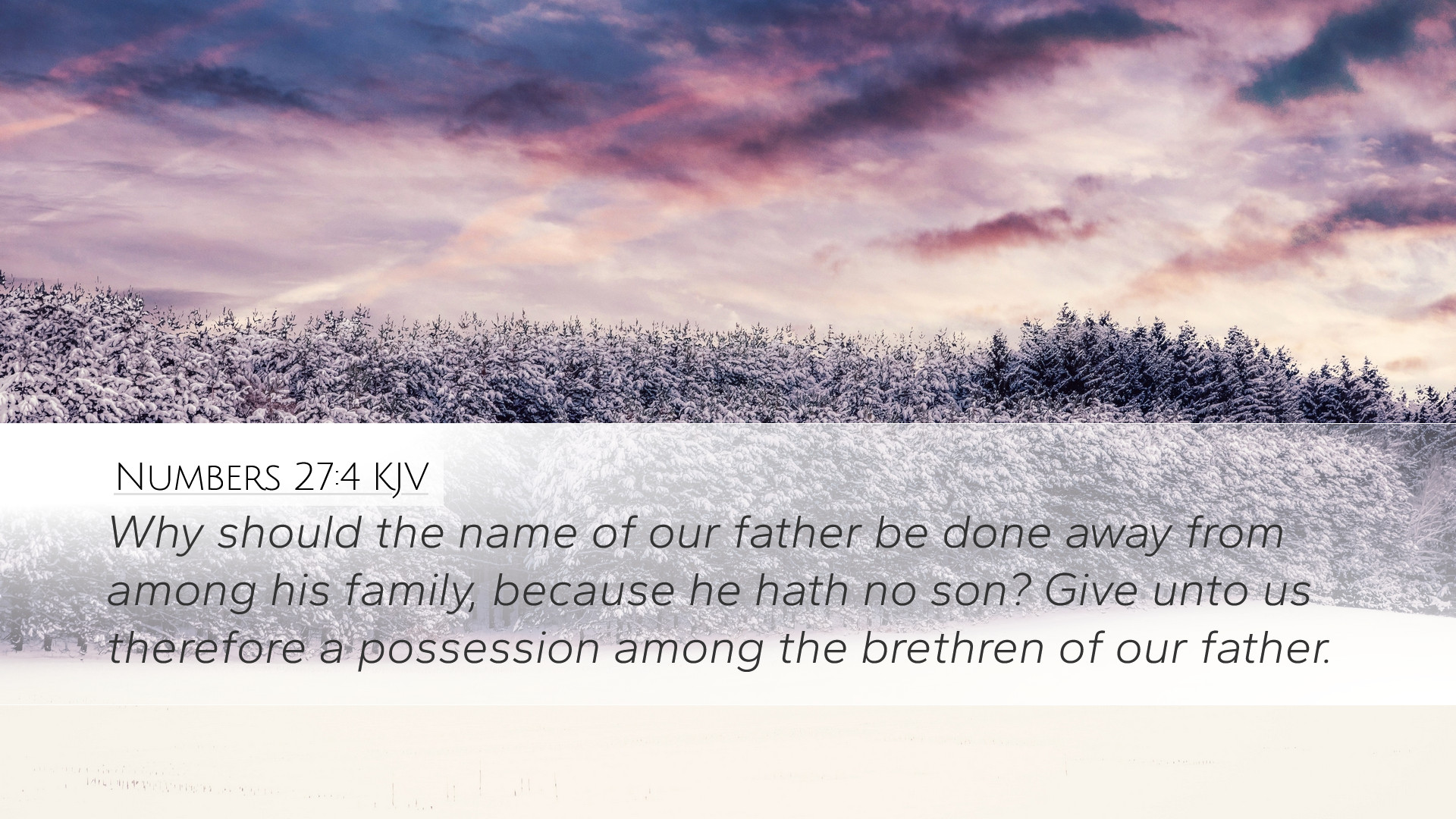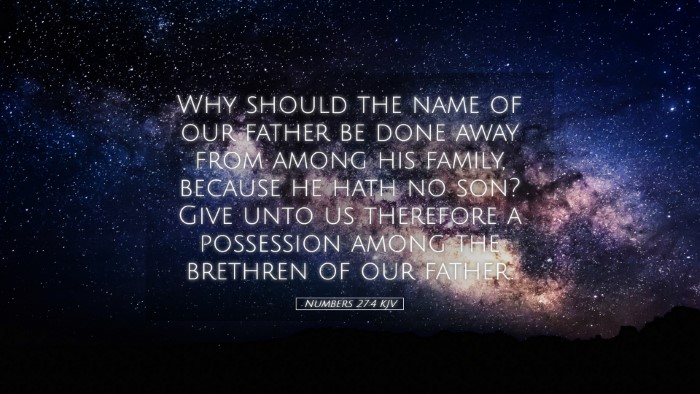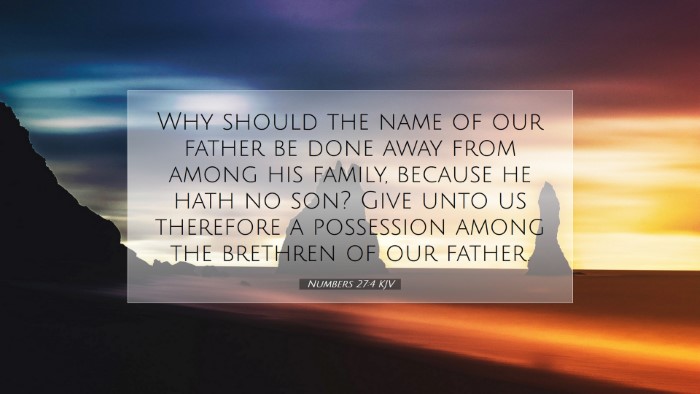Commentary on Numbers 27:4
Numbers 27:4 states: "Why should the name of our father be done away from among his family, because he hath no son? Give unto us therefore a possession among the brethren of our father." This verse captures the heart-wrenching struggle of the daughters of Zelophehad as they defend their right to inherit their father's estate in a male-dominated society. Below, we explore various insights from esteemed public domain commentaries to understand the importance of this plea.
Contextual Background
The events of Numbers 27 are set in the wilderness, where the Israelites prepare to enter the Promised Land. The narrative highlights the question of inheritance, particularly in the case of families without male heirs. The daughters of Zelophehad—Mahlah, Noah, Hoglah, Milcah, and Tirzah—bring their case before Moses, seeking justice and equity.
The Importance of the Daughters' Request
Matthew Henry's Commentary emphasizes the boldness and faith of these women. Their request reflects their understanding of divine justice and their rightful claim to their father’s inheritance, which points to the faithfulness of God in providing for all His people regardless of gender.
Henry notes that the response of these daughters is not simply a matter of property but of preserving their father’s name and legacy within the community. This appeal can be seen as a precursor to more significant reforms regarding women’s rights in ancient Israel, presenting an early challenge to societal norms.
Theological Implications
Albert Barnes highlights the theological implications of this request. He points out that the actions of Zelophehad's daughters are significant in asserting the principle of justice, indicating that divine law does not differentiate based on gender when it comes to inheritance rights. This moment mirrors the overarching themes of justice and mercy found throughout the Bible.
Barnes emphasizes that their request reinstates the idea that God is impartial and that His blessings are for all His children. He elaborates on how this scripture paves the way for recognizing women's dignity and their role in God's plan, which is crucial for communal integrity and future generations.
Social Dimensions of the Request
Adam Clarke elaborates further on the socio-cultural context. He notes that property laws at the time typically favored male heirs, which adds weight to the daughters' struggle. Clarke suggests that their plea is not just for material possession but reflects a deeper desire for recognition and respect within their community.
Clarke articulates that the daughters' boldness in approaching Moses can serve as an inspiration for marginalized groups today. It challenges both historical and contemporary readers to consider issues of equity and justice in their communities. Such themes echo throughout biblical narratives, indicating a continuous thread of advocacy for the underrepresented.
God’s Response
In subsequent verses, God responds positively to the daughters' request, affirming their inheritance rights. This divine endorsement, as reflected in the commentaries, illustrates God’s heart for justice and His willingness to overturn societal norms that hinder righteousness.
Henry points out that God's response also serves as a model for today’s believers, showing that God honors faithfulness and courage in the pursuit of justice. The affirmation of the daughters' claim stands as a divine endorsement of their actions, signifying a progressive step for women’s rights in ancient Israel.
Application for Modern Readers
The commentary on Numbers 27:4 has profound implications for pastors, students, theologians, and Bible scholars today. It compels readers to examine how issues of justice, equity, and identity are addressed within their contexts. There are several pertinent applications that emerge:
- Faithfulness: The daughters demonstrate a strong faith in God’s justice, inspiring believers to trust in God’s provision for their rights and dignity.
- Advocacy: Their actions remind us of the importance of advocating for those who are marginalized, urging modern Christians to pursue justice actively.
- Community Identity: The preservation of their father's name within the community teaches us about the significance of names and legacies, calling for an understanding of our identity in relation to our community and heritage.
Conclusion
Numbers 27:4 is a powerful testament to the courage to seek justice and the unwavering belief in God's fair treatment of all His children. Through the lens of respected commentaries, it becomes clear that the plea made by the daughters of Zelophehad transcends their time, offering enduring truths that challenge present social structures. The ongoing relevance of this scriptural moment urges all who read it to reflect on their role in promoting justice and equity in today’s world.


